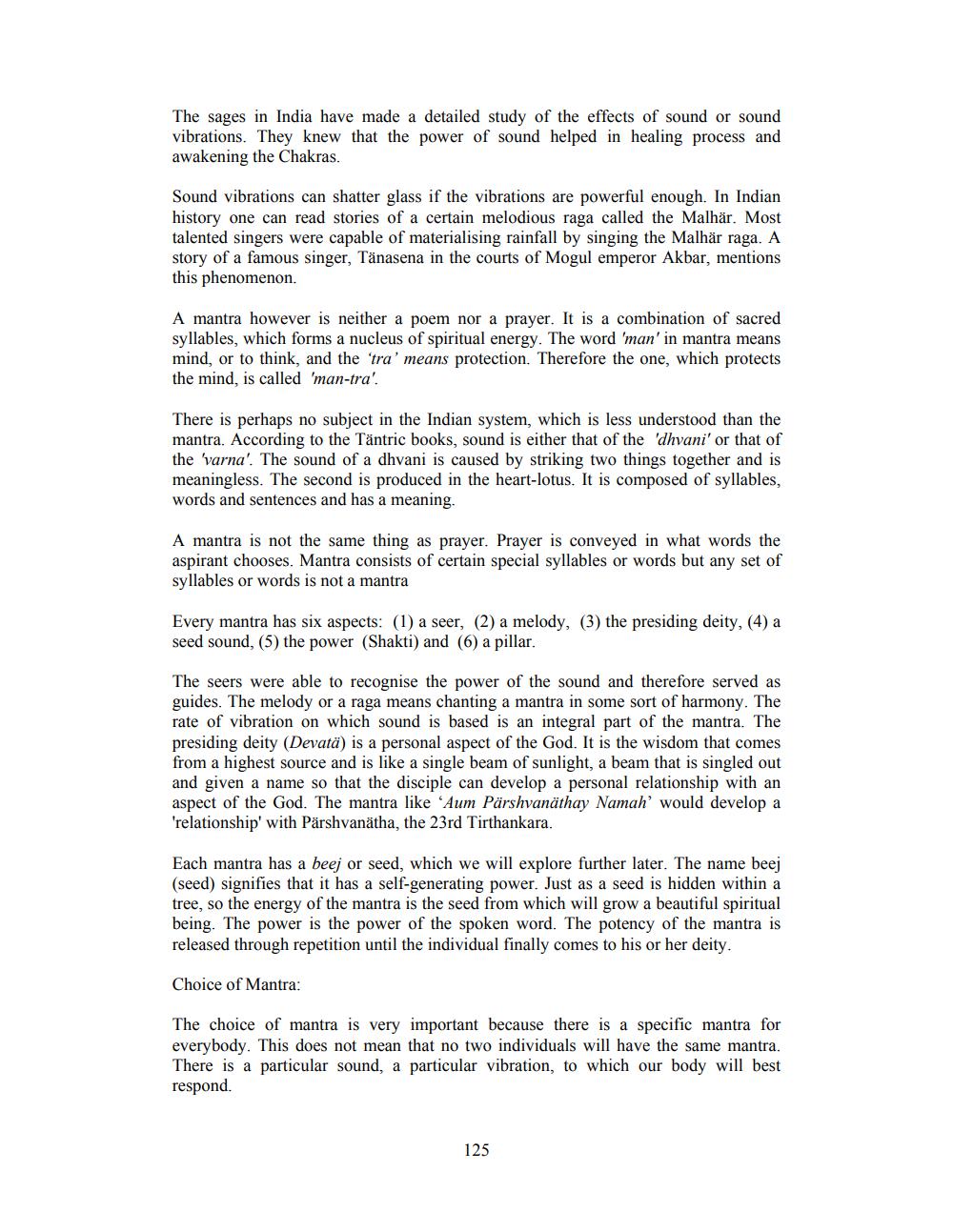________________
The sages in India have made a detailed study of the effects of sound or sound vibrations. They knew that the power of sound helped in healing process and awakening the Chakras.
Sound vibrations can shatter glass if the vibrations are powerful enough. In Indian history one can read stories of a certain melodious raga called the Malhär. Most talented singers were capable of materialising rainfall by singing the Malhär raga. A story of a famous singer, Tänasena in the courts of Mogul emperor Akbar, mentions this phenomenon.
A mantra however is neither a poem nor a prayer. It is a combination of sacred syllables, which forms a nucleus of spiritual energy. The word '
man' in mantra means mind, or to think, and the 'tra' means protection. Therefore the one, which protects the mind, is called '
man-tra'.
There is perhaps no subject in the Indian system, which is less understood than the mantra. According to the Tantric books, sound is either that of the 'dhvani' or that of the 'varna'. The sound of a dhvani is caused by striking two things together and is meaningless. The second is produced in the heart-lotus. It is composed of syllables, words and sentences and has a meaning.
A mantra is not the same thing as prayer. Prayer is conveyed in what words the aspirant chooses. Mantra consists of certain special syllables or words but any set of syllables or words is not a mantra
Every mantra has six aspects: (1) a seer, (2) a melody, (3) the presiding deity, (4) a seed sound, (5) the power (Shakti) and (6) a pillar.
The seers were able to recognise the power of the sound and therefore served as guides. The melody or a raga means chanting a mantra in some sort of harmony. The rate of vibration on which sound is based is an integral part of the mantra. The presiding deity (Devatä) is a personal aspect of the God. It is the wisdom that comes from a highest source and is like a single beam of sunlight, a beam that is singled out and given a name so that the disciple can develop a personal relationship with an aspect of the God. The mantra like "Aum Pärshvanäthay Namah' would develop a 'relationship with Pärshvanätha, the 23rd Tirthankara.
Each mantra has a beej or seed, which we will explore further later. The name beej (seed) signifies that it has a self-generating power. Just as a seed is hidden within a tree, so the energy of the mantra is the seed from which will grow a beautiful spiritual being. The power is the power of the spoken word. The potency of the mantra is released through repetition until the individual finally comes to his or her deity.
Choice of Mantra:
The choice of mantra is very important because there is a specific mantra for everybody. This does not mean that no two individuals will have the same mantra. There is a particular sound, a particular vibration, to which our body will best respond
125




